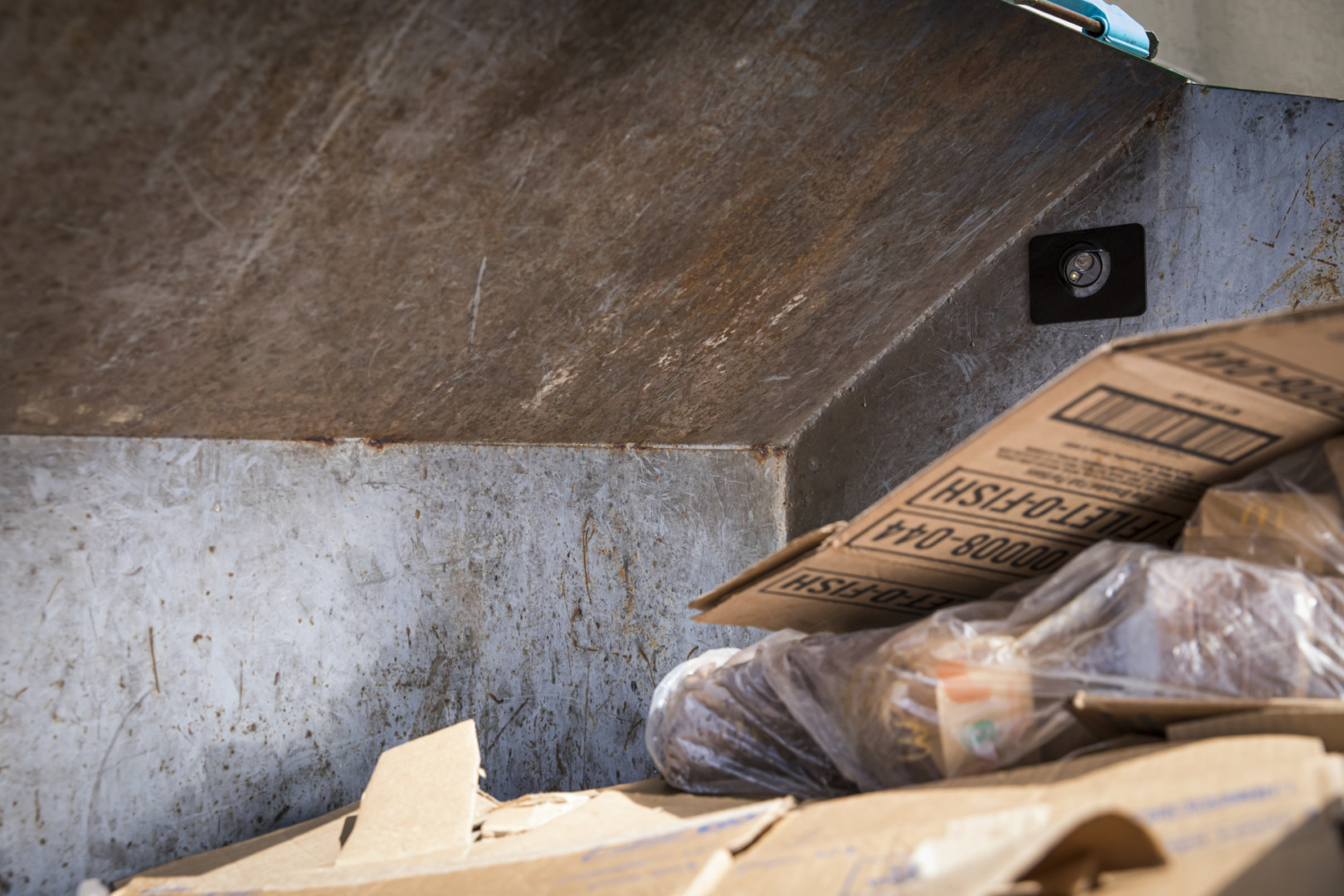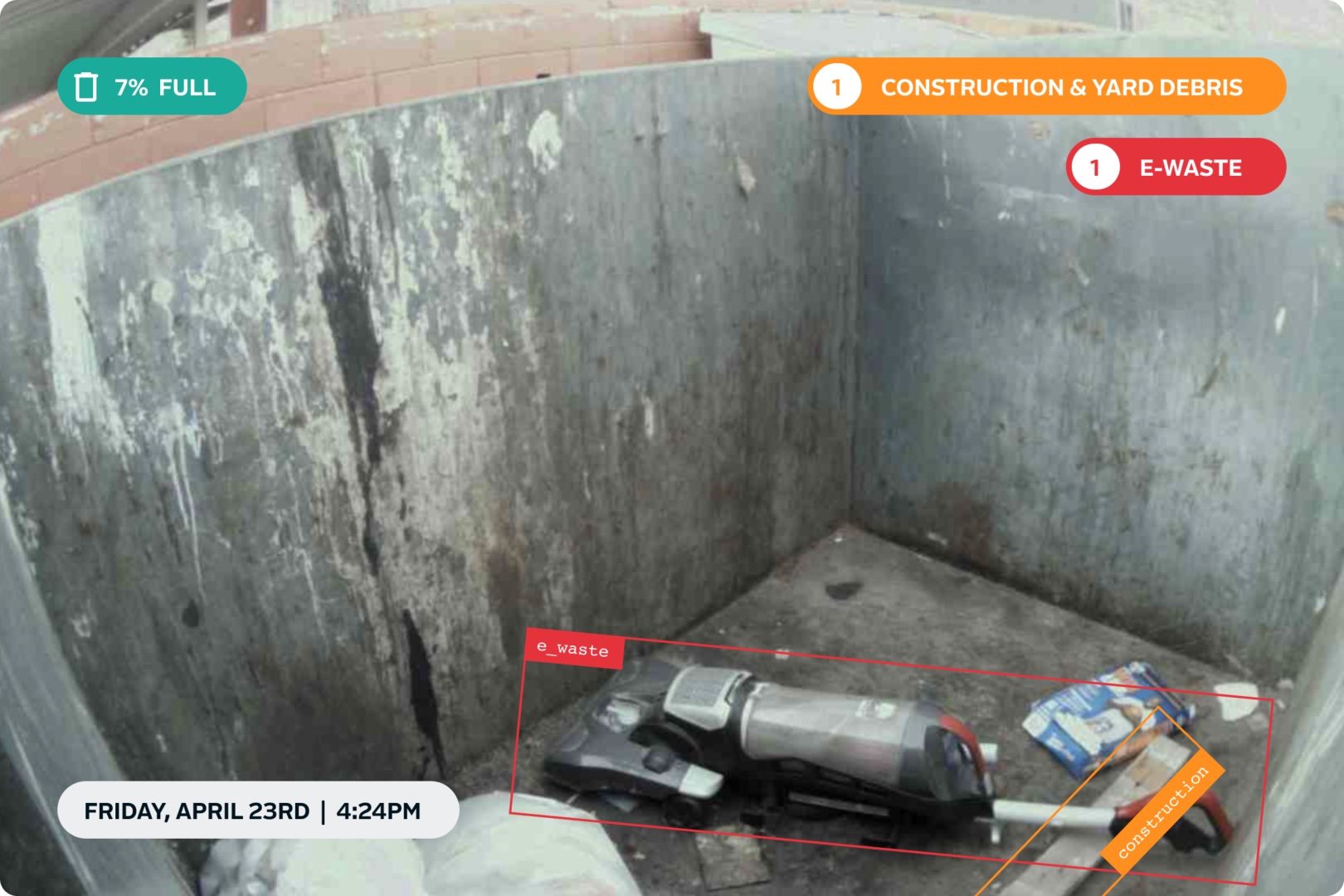Image courtesy of Compology
Smart technologies are helping us manage resources more efficiently – from thermostats like Nest to irrigation systems that track the weather – many of these devices are already at work in our homes or businesses. But what about making waste disposal smart?
Jason Gates, CEO and cofounder of Compology, has taken smart technology to a new level with the development of smart dumpsters. The technology helps companies reduce disposal costs, recycling contamination, and the number of miles trucks drive to empty dumpsters.

A dumpster outfitted with one of Compology’s sensors. Image courtesy of Compology
Intern beginnings
While working as an intern for a construction engineering firm, Jason discovered the inefficiencies of many of the dumpsters surrounding a large tunnel project. Dumpsters were contaminated with the wrong materials, overflowing, or emptied before they were full. Using his degree in civil and environmental engineering and knowledge of this waste problem, Gates went on to found Compology along with Ben Chehebar, now a $37 million company and Certified B Corporation.
How it works
Compology outfits dumpsters with durable sensors that capture images of dumpster contents multiple times a day. Their technology automatically identifies what service schedule, dumpster size, and dumpster are needed for each site, optimizing pickups and saving clients money.
Traditionally dumpsters are emptied on a fixed schedule similar to how we put our garbage out on a certain day of the week. Instead Compology software tracks how full a dumpster is and signals a needed pick up only when it reaches a certain fullness. As it tracks over time, the data informs a more efficient pick up schedule. The updates ensure trucks are driving only to pick up when bins are full, significantly cutting down on disposal costs and the number of miles vehicles are on the road. Fewer trucks on the road mean fewer greenhouse gas emissions, helping companies reduce their carbon footprint.

Compology alerts clients with information like how full a dumpster is or when contamination occurs.
The technology also notifies customers when contamination occurs. When we recycle the wrong materials into a bin, this can lead to contamination that sends entire loads of recycling to landfills. When Compology sensors detect the wrong material in a dumpster, a text notification is sent to the maintenance manager, giving them time to remove the item ahead of pick up. By moving raw materials, finished goods, and waste into the appropriate waste streams it helps companies achieve the smallest footprint possible.
The company has more than 100,000 sensors deployed across the U.S. The technology can be used in a single dumpster or across an entire fleet. The City of Miami has 40 dumpsters outfitted with Compology sensors which the city predicts will reduce truck emissions by 60 percent, and help the city achieve its carbon neutrality goals.
"With sustainability innovations, like waste metering, that not only make financial sense, but are also easily scalable, businesses and governments can take impactful action today to help reduce emissions, while operating more efficiently and cost effectively," remarked Gates of Compology’s technologies and services.
Fewer waste pick ups also mean savings for companies, music to the ears of many businesses, looking to cut down on disposal costs. McDonald’s in Las Vegashas used the sensors to cut back on 8,000 truck miles, reducing CO2 emissions by 32 metric tons.
The future of waste
Waste disposal is becoming an increasingly difficult problem on our planet as we produce more and more waste. In 2018, China stopped taking certain types of waste from the U.S. and other countries, causing prices to increase and waste management companies to scramble. As more businesses and governments look to reduce their carbon footprint and manage waste disposal, services like Compoloy’s will become increasingly important.
